For over a dozen years, Alecia Talbott has led the Down Syndrome Association of Middle Tennessee, in Nashville. Recently, GLOBAL’s Vice President – Strategic Alliances, David Tolleson, and Senior Project Manager, MaryKate Vandemark, met with this dynamic leader to discuss her life, family, appreciation for research, and caring through quilting.

DAVID: Tell us a bit about you, your background, and your family.
ALECIA: I have 3 children. The oldest is off and married and working and thriving in Kentucky. My daughter is 19. She is on the autism spectrum and intellectually gifted. My 16-year-old, Ron, has Down syndrome and Down Syndrome Regression Disorder and Type 1 Diabetes, along with some other things that kids with Down syndrome are more likely to have. I went to college and got my graduate degree and was working in marketing for several years and then semi-retired when Ron was pre-school age so that he could go to the county pre-school, though we ended up sending him to an inclusive private pre-school. Prior to that time, I’d been volunteering with the Down Syndrome Association here in Nashville, particularly working on projects that promoted inclusion, because I wanted my son to be able to go to Starbucks and order himself a coffee even if it took him 10 minutes to do it. Or whatever he wanted to do. I just wanted him to have the support he needed to do whatever he chose and for everyone else to have the patience to let him do it. When the job at the Down Syndrome Association came open, I prayed and spoke with a lot of folks and concluded that this is what I should be doing with my life. I’ve been Executive Director for 13 years now.
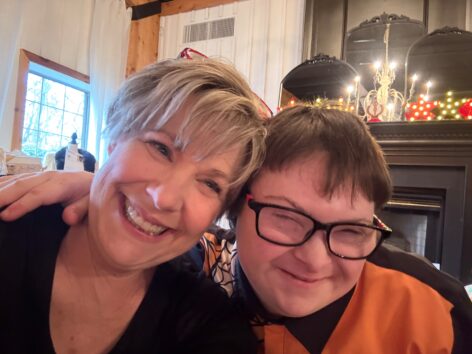
DAVID: I know the Nashville community and nationwide community are glad you made that decision! You mentioned that Ron has Down Syndrome Regression Disorder (DSRD). Are you familiar with the study being conducted by our affiliate, Linda Crnic Institute?
ALECIA: Yes, we met with Dr. Joaquín Espinosa and the Crnic team in Colorado. Unfortunately, Ron didn’t qualify for the study. He’d originally been diagnosed with PANDAS (Pediatric Autoimmune Neuropsychiatric Disorders Associated with Streptococcal Infections) and he’d had 2 ½ to 3 years of treatments, so even though he got off those treatments for the mandatory 6-week period of time before the study evaluation, he still had lingering benefits from all that treatment, so wasn’t an ideal candidate for the study. But Dr. Espinosa continues to consult with our psychiatrist here, as he did with our immunologist here, so Ron’s on tofacitinib. It has been a game changer.
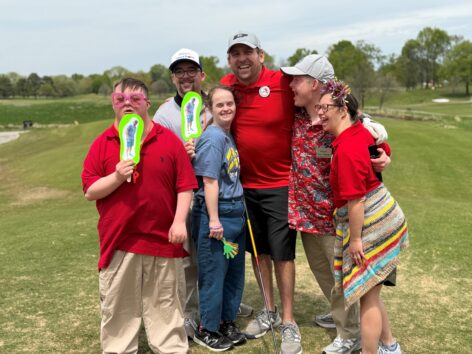 DAVID: Oh, good! It sounds like so much is related to immune system dysregulation in this population.
DAVID: Oh, good! It sounds like so much is related to immune system dysregulation in this population.
ALECIA: He’s taking a capsule, so it’s much easier than the IVIG that he did for 18 months. It really is a game changer. He’s in high school, he goes into Papa John’s, tells them what he wants, and picks up his order by himself. He can go out again and go grocery shopping. These are things he couldn’t do for years with DSRD. We’ve had a great experience. A lot of people go through neurology. We started with functional medicine, then immunology. We now have a psychiatrist who specializes in catatonia, which is fantastic, and who now has a number of patients with DSRD. We also have a rheumatologist who is taking care of his medications at this point. There’s a Facebook group for families of kids with Regression Disorder and we all share our stories and answer questions when people ask.
MARYKATE: That’s so fantastic! We’re hearing so much about Down Syndrome Regression Disorder, but I don’t think we always hear the stories of success. It’s good information to share.
ALECIA: You hear to get treated early and there’s a lot to that. When it started, we didn’t know what was going on. I thought he had schizophrenia or bipolar disorder, so we went everywhere looking for answers. One doctor even told us that everyone has growing pains, which is why he suddenly started walking like a 95-year-old man! We explored psychiatric reasons and were told that some kids get tics, and I told them this wasn’t just a tic, this isn’t Tourette’s. It was really through doing a lot of research and talking to other people that we found answers.
DAVID: I’m glad that even though he wasn’t a candidate for the trial – and thank you for looking into it – that the information and that line of research was of benefit to your family. Changing gears a bit, tell us about your favorite programs at the Down Syndrome Association of Middle Tennessee.
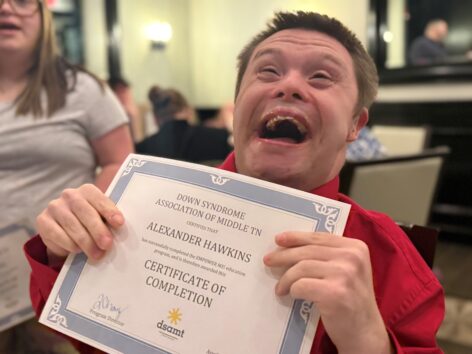
ALECIA: Well, this year my very favorite program is the Empower Program which was made possible with a GLOBAL Organization Member Education Award. We took a whole classroom of adults and went through a 10-week course on body, safety, consent, sexuality, internet use, how to say no – or yes – all those things that are important for an adult to know. At the end of the course, we took everyone out for a nice dinner to celebrate and to discuss health – such as why they should at least try the salad! It was a great opportunity that we’ve now been able to expand into middle and high school, which is a bit abbreviated since they’re younger, but we still cover consent, safety, and related topics.
My favorite long-running program is our First Call program, which is so strong and so important and is really at the crux of what all Down syndrome associations were created for – to connect new families with other families and tell them congratulations, because it’s not a death sentence and your life can be really wonderful if you embrace the gifts that Down syndrome brings.
We passed the Down Syndrome Information Act in Tennessee several years ago, which requires the Department of Health to have accurate, up-to-date information about Down syndrome, which we supply for them both for parents and for physicians, the latter including how to deliver a diagnosis, the guidelines for treatment of children with Down syndrome, and other great information. We also added an Outreach Manager, which is a very important role for DSAMT. She makes sure that the ob/gyns and hospitals are very aware of the support that’s available to people.
 DAVID: Thank you again for the beautiful quilt you sent when I was going through a couple of months of daily radiation treatments last year. The fatigue was real, and the quilt was so comforting when I just needed to lay down. How did you get into quilting and how did that begin a form of showing care and love to those around you?
DAVID: Thank you again for the beautiful quilt you sent when I was going through a couple of months of daily radiation treatments last year. The fatigue was real, and the quilt was so comforting when I just needed to lay down. How did you get into quilting and how did that begin a form of showing care and love to those around you?
ALECIA: Well, my late mother was a quilting fanatic. We have hundreds of quilts in our house that she made. She was a member of the Music City Quilt Guild which is probably one of the biggest in Tennessee. After our son, Ron, was born she used quilting to process the news and to support me and Ron. Quilting guilds often do charity work, so she started “Angel Babies”, making beautiful, one-of-a-kind baby quilts. It became an annual project and they’ve been doing it ever since. Every year, every quilt we receive is one-of-a-kind and handmade and beautiful. We’ve received enough to share with the other Down syndrome associations here in Tennessee. They’ve also given us larger quilts for our adults who are in the hospital. There’s nothing like that feeling that you have something that no one else has and that somebody you don’t know made it specifically for you. It’s very touching, especially to our new moms. I’m proud that I can continue that legacy. When Mom passed, I inherited all her equipment and probably enough fabric to wrap around the world, and so I eventually picked it up and I now quilt with several of her old quilting friends. We get together every month and it’s a highlight for me.
Guild which is probably one of the biggest in Tennessee. After our son, Ron, was born she used quilting to process the news and to support me and Ron. Quilting guilds often do charity work, so she started “Angel Babies”, making beautiful, one-of-a-kind baby quilts. It became an annual project and they’ve been doing it ever since. Every year, every quilt we receive is one-of-a-kind and handmade and beautiful. We’ve received enough to share with the other Down syndrome associations here in Tennessee. They’ve also given us larger quilts for our adults who are in the hospital. There’s nothing like that feeling that you have something that no one else has and that somebody you don’t know made it specifically for you. It’s very touching, especially to our new moms. I’m proud that I can continue that legacy. When Mom passed, I inherited all her equipment and probably enough fabric to wrap around the world, and so I eventually picked it up and I now quilt with several of her old quilting friends. We get together every month and it’s a highlight for me.
DAVID: You’ve been an Executive Director for awhile now. What do you see as sources of strength and joy in the Down syndrome community, what are the headwinds, and what are your hopes going forward?
ALECIA: Despite strides in awareness, I think there’s still a lack of real understanding, particularly as it relates to inclusive, meaningful education, which arguably could have the biggest impact on someone leading an inclusive, independent life. Our education system is not well suited for children with Down syndrome to get their maximum potential out of it. We made a lot of progress, at least pre-COVID pandemic, during which we went back about 10 steps. There’s a lot of thinking about doing things separately again, which bothers me to my core. I hope we’ll eventually get to an education system that truly values individuals with Down syndrome and other learning differences. A classroom where a visual learner and a non-visual learner are working side by side with different supports. Personally, I think every kid needs different supports and an IEP whether they have a disability or not – individual attention is so important! When I switched my daughter and son from public school to private school, it was because the private school said, “We want you to bring your children here because they have things to bring that we don’t currently have.” That’s the way all schools, churches, and employers should think. The best example of that is from our employment partnership program several years ago. A man called me and said, “I want to hear some people with Down syndrome.” He’d seen the television show “Born This Way” and thought they could really add something to his business model. I’d never gotten a call like that. He initially hired 3 people to work in visible jobs in his store. I checked in later to see if he needed any support and he said no, saying that he assumed they’d be there on time and do their jobs, and he was right. What he didn’t expect was that every other employee works harder, makes more money, and does better because they’re in the same room with their colleagues with Down syndrome. That’s the gift and it’s something that most places don’t realize because they haven’t had the opportunity for that experience yet. I think it’s why we call ourselves the Lucky Few.
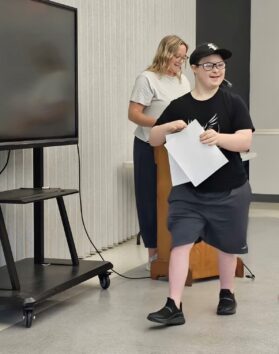
MARYKATE: I used to tell David the same thing when we worked in an office with a self-advocate. The best days were the ones when our colleague, Chess, was there.
ALECIA: Right? It’s a totally different atmosphere. A better atmosphere. We hired Olivia and she brings a lot of charm, and we have her going to meet families and do what she does best which is just being herself. It sets a different tone towards celebration and appreciation, and I think that’s important. The world would be a much better place if we had people with Down syndrome and other disabilities infiltrated into all areas of life.
DAVID: You’ve always been supportive of the work happening on the national scene. At GLOBAL, we’re particularly grateful for DSAMT’s generous gifts to support the updating and expansion of our Medical Care Guidelines for Adults with Down Syndrome. Why do you think it’s important for families and local, regional, and statewide organizations to support the work going on at the national level?
ALECIA: Because it takes a village! We’re doing our very best in a relatively small, localized area – even if you’re a statewide organization. The real bang for the buck is at the national and global level where we can impact people who aren’t anywhere near a Down syndrome association. Your guidelines for adults? There are people who don’t live anywhere near an adult Down syndrome clinic or a major university Center of Excellence, who aren’t well educated or don’t speak English and for their physicians to have access to the most up-to-date, accurate information on how to treat them? I think we all owe a little portion of that as good human beings. I think that’s what being a good steward of life is about.
It takes everybody. We all know that if one organization goes to the legislature and says, “this is important”, that’s great. But, if a hundred of us go, our power is much bigger. I think everyone needs to stay tuned in and involved. In fact, I’ll be at this year’s NDSC Convention talking about nurturing relationships with legislators. What I love about taking self-advocates to the Capitol is they’re not intimidated. They might be shy, but once they start talking, they’re not operating with the notion that the legislator is more important than they are. They’re going in talking as equals. It’s really beautiful and usually makes the legislators open up in a much different way. So, I think it’s important for parents to include their children with disabilities when they’re advocating.
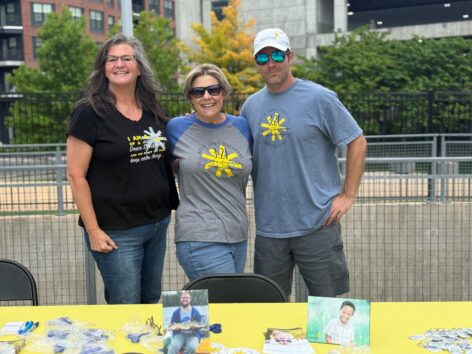 DAVID: Is there anything else you’d like to share?
DAVID: Is there anything else you’d like to share?
ALECIA: I have a fantastic staff! We’ve been very fortunate. Despite this financial climate we have a Program Director, an Outreach Manager, an Office Manager, and a Director of Policy & Advocacy, as well as our self-advocate colleague who does public relations for us. Three years is the shortest time any of our staff has been with us. We have a fantastic volunteer Board of Directors which is very passionate about growing the organization to meet all these new needs, because every time you have progress in one area, it points you to a need in another. For example, we’ve increased life expectancy and now we have people who need a place to live. There will always be a need, and it will always be a challenge, but when you have great, passionate people who support you and believe in the vision of the organization it makes a difference. We also have great partners. Not just GLOBAL, but the other national organizations and our colleagues with the other I/DD organizations in Tennessee. People want to give me a lot of credit, but I tell them it’s not me, it really takes a village. I do a very small part of what happens.

DAVID: Well, yes, it’s not you alone, but so much is dependent on your leadership. The fact that people stay with you a long time is because they like you and they believe in your leadership, and they trust the direction you’re taking them and that makes a difference. It makes a difference not only for your organization but your community to have that stability and continuity and investment. Your partner organizations and the elected officials see that you’ve been around awhile and that you know what you’re doing and that you’re guiding the ship well. You’ve become a leader that people trust, and you can’t understate the difference that makes. So, yes, you’re playing a part, but you’re playing a really big part!
ALECIA: I consider it a service. It’s a pleasure and a blessing to do what I do.
 It was a scorchingly hot July day in 1973 when my sister Lorraine came into our world. Our mother’s pregnancy had been normal and no additional prenatal testing had been recommended. My grandmother and I waited at Good Samaritan Hospital in West Palm Beach, Florida, while my mother labored; we feared something was wrong as the hours dragged by and we had no word. Our concerns were realized when my father came to tell us that we had a baby girl — but she was struggling. Lorraine had been whisked off to NICU and the attending pediatrician told my parents he thought she may have Down Syndrome.
It was a scorchingly hot July day in 1973 when my sister Lorraine came into our world. Our mother’s pregnancy had been normal and no additional prenatal testing had been recommended. My grandmother and I waited at Good Samaritan Hospital in West Palm Beach, Florida, while my mother labored; we feared something was wrong as the hours dragged by and we had no word. Our concerns were realized when my father came to tell us that we had a baby girl — but she was struggling. Lorraine had been whisked off to NICU and the attending pediatrician told my parents he thought she may have Down Syndrome.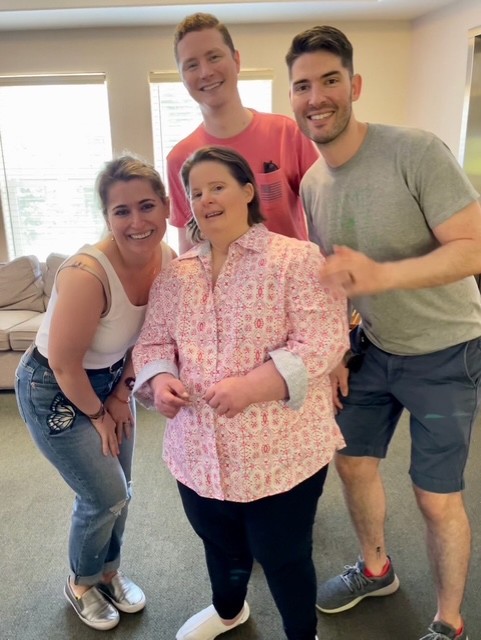



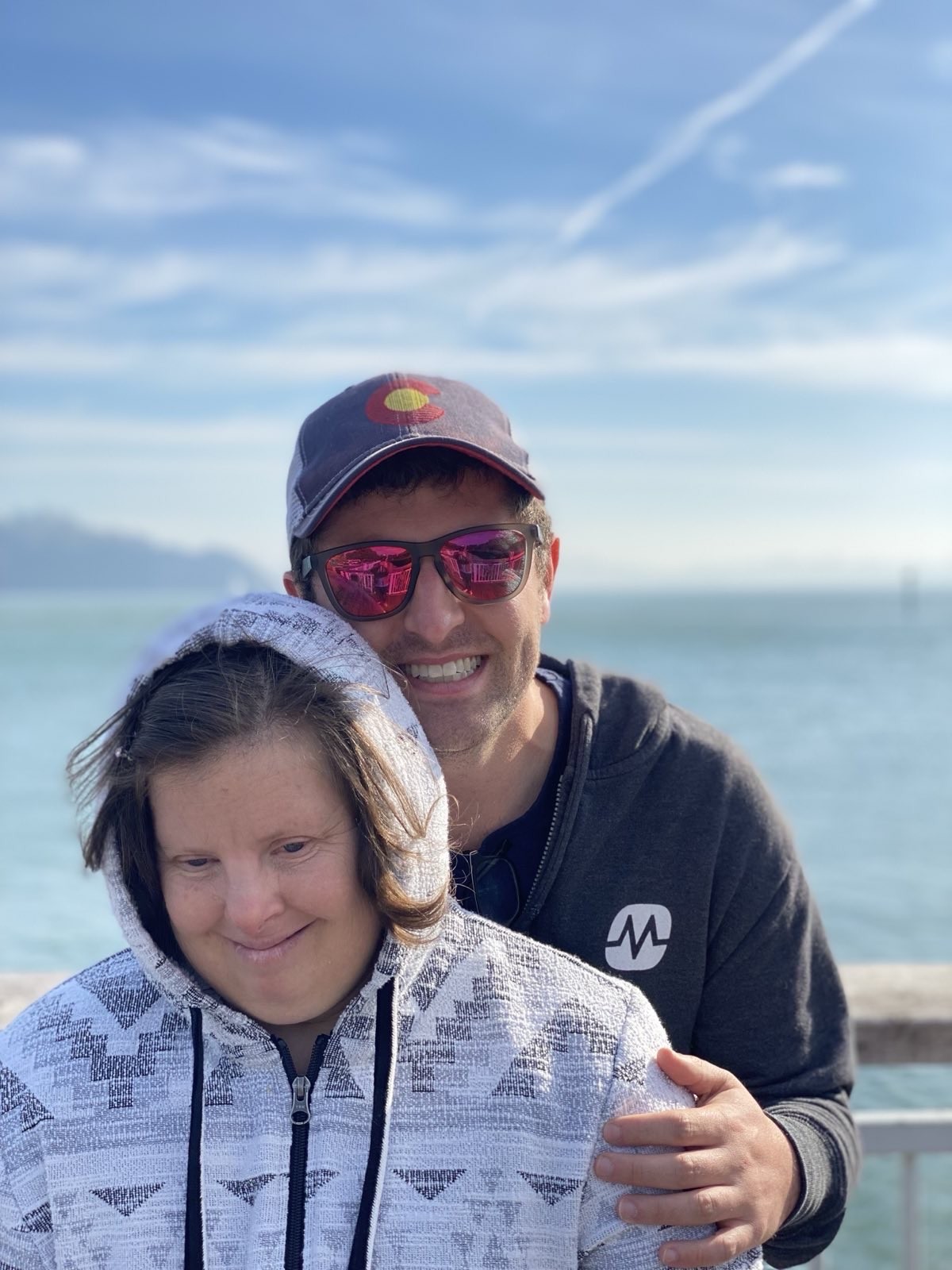

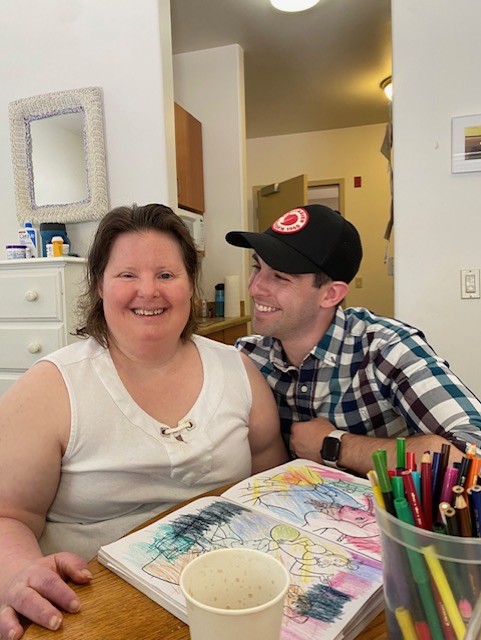

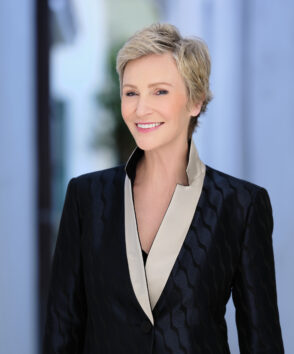 DENVER, Sep 04, 2025 –
DENVER, Sep 04, 2025 – 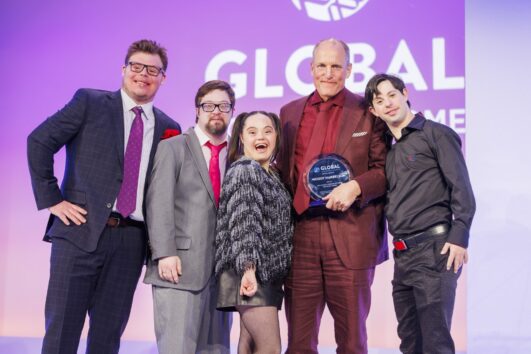
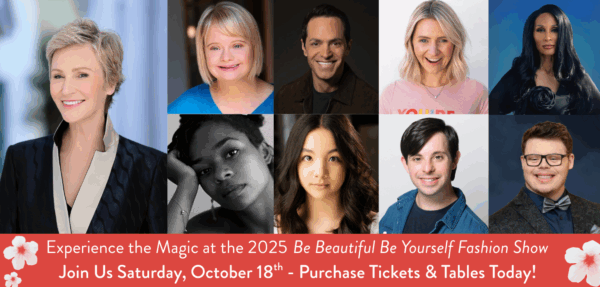
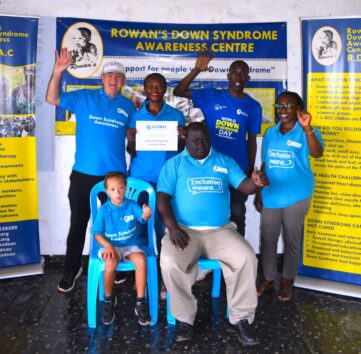
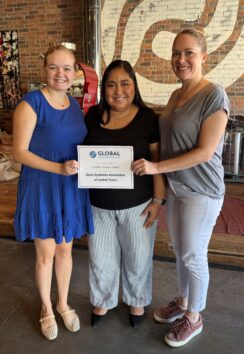 “GLOBAL believes in the power and heart our Organization Members bring to their communities each and every day,” says Michelle Sie Whitten, President & CEO of GLOBAL. “Our goal with these awards is to empower meaningful change for the families they serve.”
“GLOBAL believes in the power and heart our Organization Members bring to their communities each and every day,” says Michelle Sie Whitten, President & CEO of GLOBAL. “Our goal with these awards is to empower meaningful change for the families they serve.”
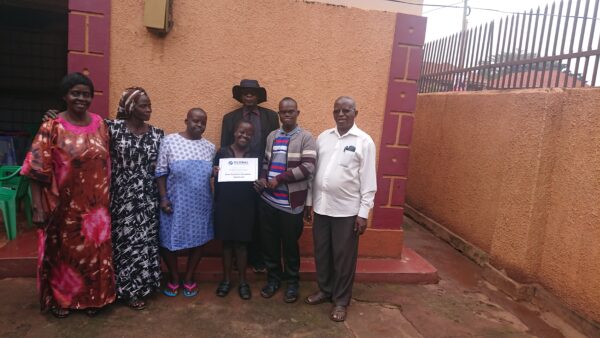








 DAVID: Oh, good! It sounds like so much is related to immune system dysregulation in this population.
DAVID: Oh, good! It sounds like so much is related to immune system dysregulation in this population.
 DAVID: Thank you again for the beautiful quilt you sent when I was going through a couple of months of daily radiation treatments last year. The fatigue was real, and the quilt was so comforting when I just needed to lay down. How did you get into quilting and how did that begin a form of showing care and love to those around you?
DAVID: Thank you again for the beautiful quilt you sent when I was going through a couple of months of daily radiation treatments last year. The fatigue was real, and the quilt was so comforting when I just needed to lay down. How did you get into quilting and how did that begin a form of showing care and love to those around you? Guild which is probably one of the biggest in Tennessee. After our son, Ron, was born she used quilting to process the news and to support me and Ron. Quilting guilds often do charity work, so she started “Angel Babies”, making beautiful, one-of-a-kind baby quilts. It became an annual project and they’ve been doing it ever since. Every year, every quilt we receive is one-of-a-kind and handmade and beautiful. We’ve received enough to share with the other Down syndrome associations here in Tennessee. They’ve also given us larger quilts for our adults who are in the hospital. There’s nothing like that feeling that you have something that no one else has and that somebody you don’t know made it specifically for you. It’s very touching, especially to our new moms. I’m proud that I can continue that legacy. When Mom passed, I inherited all her equipment and probably enough fabric to wrap around the world, and so I eventually picked it up and I now quilt with several of her old quilting friends. We get together every month and it’s a highlight for me.
Guild which is probably one of the biggest in Tennessee. After our son, Ron, was born she used quilting to process the news and to support me and Ron. Quilting guilds often do charity work, so she started “Angel Babies”, making beautiful, one-of-a-kind baby quilts. It became an annual project and they’ve been doing it ever since. Every year, every quilt we receive is one-of-a-kind and handmade and beautiful. We’ve received enough to share with the other Down syndrome associations here in Tennessee. They’ve also given us larger quilts for our adults who are in the hospital. There’s nothing like that feeling that you have something that no one else has and that somebody you don’t know made it specifically for you. It’s very touching, especially to our new moms. I’m proud that I can continue that legacy. When Mom passed, I inherited all her equipment and probably enough fabric to wrap around the world, and so I eventually picked it up and I now quilt with several of her old quilting friends. We get together every month and it’s a highlight for me.
 DAVID: Is there anything else you’d like to share?
DAVID: Is there anything else you’d like to share?

 “I’m excited to have one of my favorite superheroes, Jeremy Renner, back at the fashion show,” says Ambassador Guion Macsovits. “I went to his house and to an Avengers movie premiere. He told me I was a ‘real superhero.’ It was one of the best nights of my life.”
“I’m excited to have one of my favorite superheroes, Jeremy Renner, back at the fashion show,” says Ambassador Guion Macsovits. “I went to his house and to an Avengers movie premiere. He told me I was a ‘real superhero.’ It was one of the best nights of my life.” “I am so grateful to the Global Down Syndrome Foundation for giving me this important award,” says Kevin. “It is even more meaningful as we lost the iconic Quincy Jones last year. I hope that all my Champions friends and castmates are going to join us for this amazing event that is helping to save lives through research and medical care. Can’t wait to raise some funds and hit the runway!”
“I am so grateful to the Global Down Syndrome Foundation for giving me this important award,” says Kevin. “It is even more meaningful as we lost the iconic Quincy Jones last year. I hope that all my Champions friends and castmates are going to join us for this amazing event that is helping to save lives through research and medical care. Can’t wait to raise some funds and hit the runway!”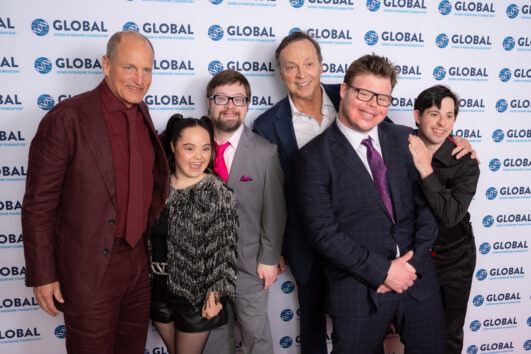
 DENVER, DALLAS, Jul 17, 2025 — Global Down Syndrome Foundation (
DENVER, DALLAS, Jul 17, 2025 — Global Down Syndrome Foundation (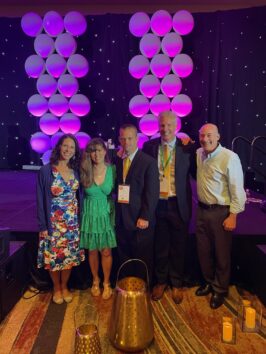 About Global Down Syndrome Foundation
About Global Down Syndrome Foundation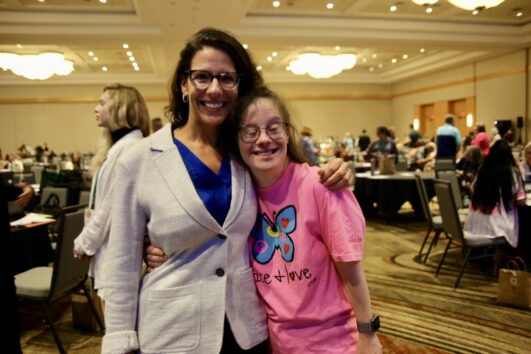 About the National Down Syndrome Congress Annual Convention
About the National Down Syndrome Congress Annual Convention 
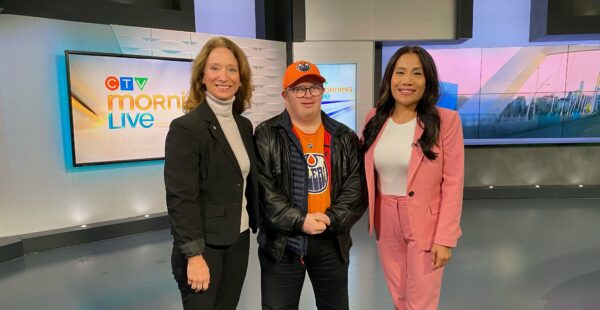
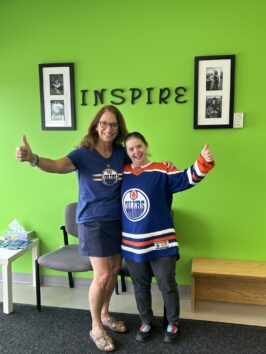
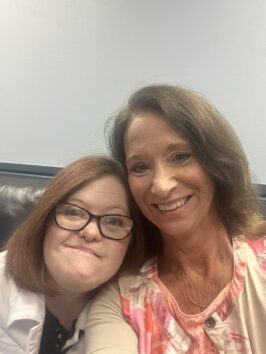
 JANET: Joey was a man with Down syndrome who was embraced by our city and our national hero, Wayne Gretzky, the star hockey player. Back in the day, Wayne was dating Joey’s older sister, so Joey got connected to the Edmonton Oilers that way and eventually became their locker room attendant for at least 25 years. When he retired at age 55, the Oilers gave him a proper send-off, even hanging a banner with his name in the arena. He was so loved by the team and our city. He had so many things about him that the community also loved, like at a game the camera would always focus on Joey, because he would sing our national anthem, “O Canada”, with such joy and animation. When you saw him, you couldn’t help but join in and sing louder! He really increased awareness of Down syndrome and people saw what a capable young man he was and what a great job he did. He really became a symbol of awareness and hope. And it wasn’t just with the Oilers. Our professional football team, the Elks, also had him work as their locker room attendant during the Oilers’ offseason. He was remarkable and when his parents were interviewed, they said they just raised him just like his 12 siblings. When we were building our literacy program and resource library, the Oilers gave a lovely gift in Joey’s name.
JANET: Joey was a man with Down syndrome who was embraced by our city and our national hero, Wayne Gretzky, the star hockey player. Back in the day, Wayne was dating Joey’s older sister, so Joey got connected to the Edmonton Oilers that way and eventually became their locker room attendant for at least 25 years. When he retired at age 55, the Oilers gave him a proper send-off, even hanging a banner with his name in the arena. He was so loved by the team and our city. He had so many things about him that the community also loved, like at a game the camera would always focus on Joey, because he would sing our national anthem, “O Canada”, with such joy and animation. When you saw him, you couldn’t help but join in and sing louder! He really increased awareness of Down syndrome and people saw what a capable young man he was and what a great job he did. He really became a symbol of awareness and hope. And it wasn’t just with the Oilers. Our professional football team, the Elks, also had him work as their locker room attendant during the Oilers’ offseason. He was remarkable and when his parents were interviewed, they said they just raised him just like his 12 siblings. When we were building our literacy program and resource library, the Oilers gave a lovely gift in Joey’s name.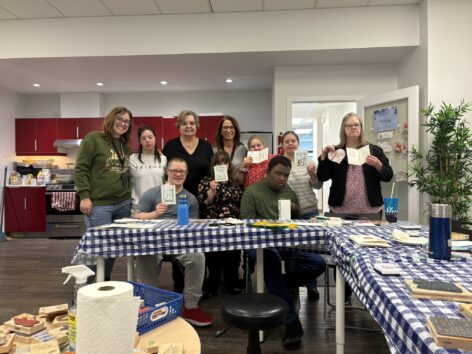
 DAVID: You touched on the importance of medical research and medical knowledge and services. We’re grateful that the Edmonton Down Syndrome Society is supporting our work as a GLOBAL Member and that you’re also helping us update and expand the GLOBAL Adult Guidelines with a generous multi-year pledge. Why is this project and GLOBAL’s other research and medical care work important to you and the families you serve?
DAVID: You touched on the importance of medical research and medical knowledge and services. We’re grateful that the Edmonton Down Syndrome Society is supporting our work as a GLOBAL Member and that you’re also helping us update and expand the GLOBAL Adult Guidelines with a generous multi-year pledge. Why is this project and GLOBAL’s other research and medical care work important to you and the families you serve?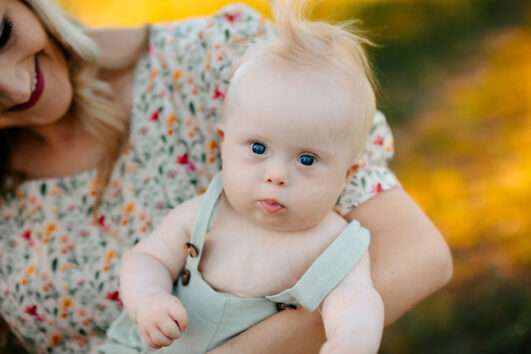
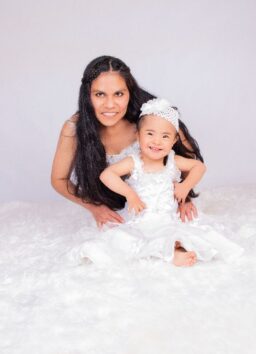
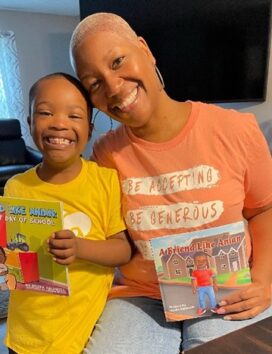
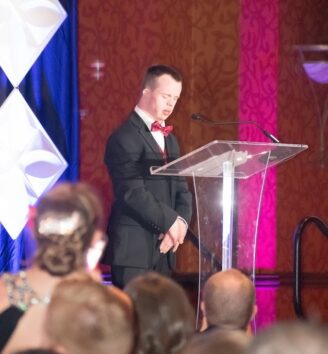 The Down Syndrome Alliance of the Midlands hosted its 7th annual Building the Future Gala on May 3rd, bringing together more than 400 passionate supporters, advocates, and community leaders for an unforgettable evening of celebration and impact. The event raised an incredible $212,000, with $10,000 of that total directly benefiting Global Down Syndrome Foundation in support of its groundbreaking research and advocacy work.
The Down Syndrome Alliance of the Midlands hosted its 7th annual Building the Future Gala on May 3rd, bringing together more than 400 passionate supporters, advocates, and community leaders for an unforgettable evening of celebration and impact. The event raised an incredible $212,000, with $10,000 of that total directly benefiting Global Down Syndrome Foundation in support of its groundbreaking research and advocacy work. syndrome community. The Down Syndrome Alliance of the Midlands was proud to recognize GLOBAL as a key partner in this mission, whose support and leadership continue to inspire local and national change.
syndrome community. The Down Syndrome Alliance of the Midlands was proud to recognize GLOBAL as a key partner in this mission, whose support and leadership continue to inspire local and national change. • Exceptional Advocate Award: Daniel Holm– Honored for his courage, voice, and impact as a self-advocate.
• Exceptional Advocate Award: Daniel Holm– Honored for his courage, voice, and impact as a self-advocate.
 Experience our inspirational and groundbreaking videos and photos. Our children and self-advocates are beautiful AND brilliant!
Experience our inspirational and groundbreaking videos and photos. Our children and self-advocates are beautiful AND brilliant! Make sure your local Representatives are on the Congressional Down Syndrome Task Force.
Make sure your local Representatives are on the Congressional Down Syndrome Task Force.